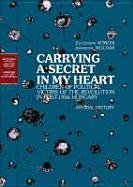The twelve-day 1956 revolution exerted a lasting effect on the fates of the families of the more than 20,000 who were imprisoned and 229 executed by the regime in the harsh reprisals that followed the crushing of the revolt. The authors present a rich selection of excerpts from the interviews conducted with the children of those Hungarians who were imprisoned for their involvement in the uprising. The intimidation, and the attendant social and economic devastation that it wrought, bore especially hard on the psyches, upbringing and education, and hence the subsequent opportunities and life courses of those children.

